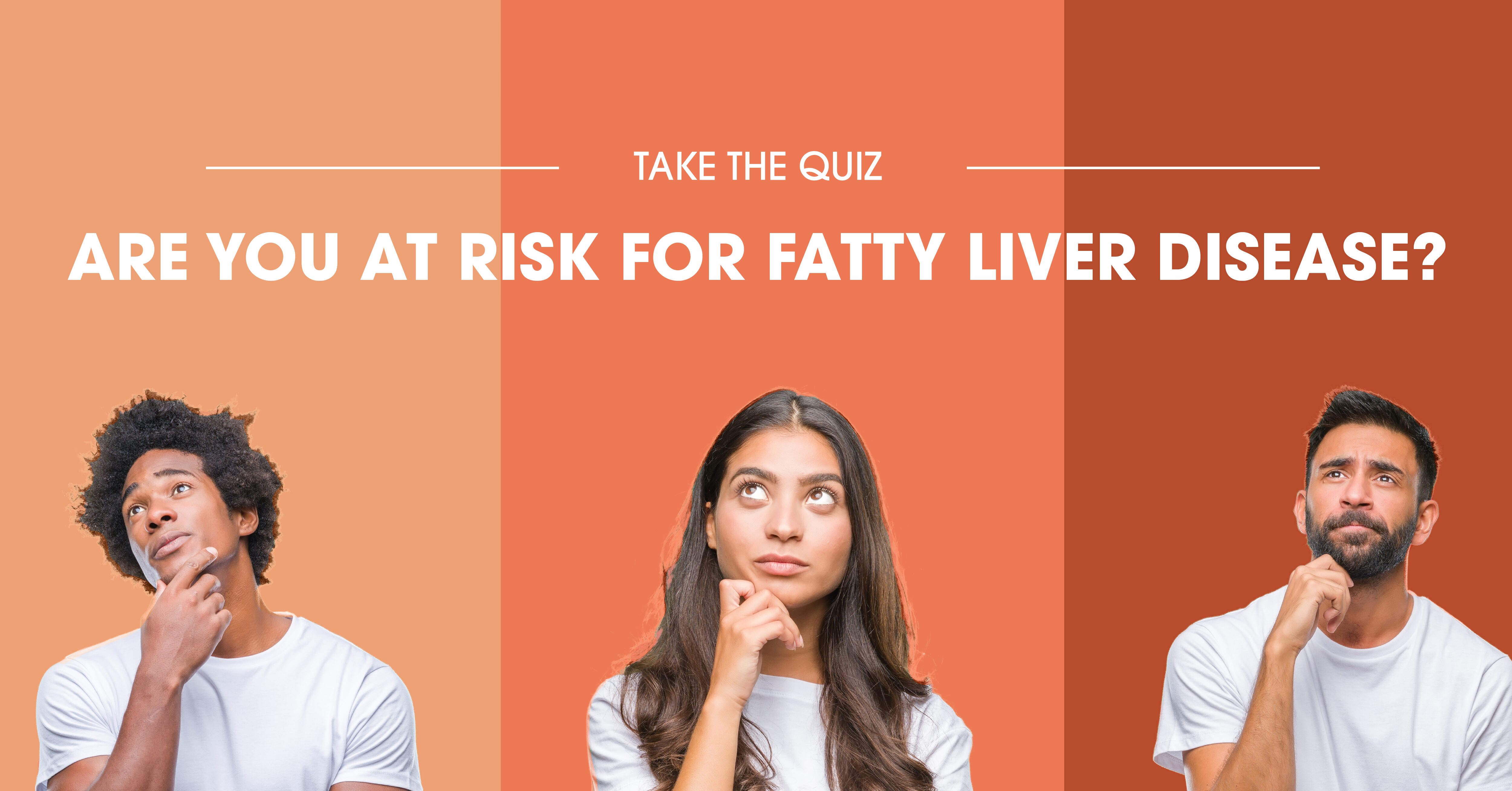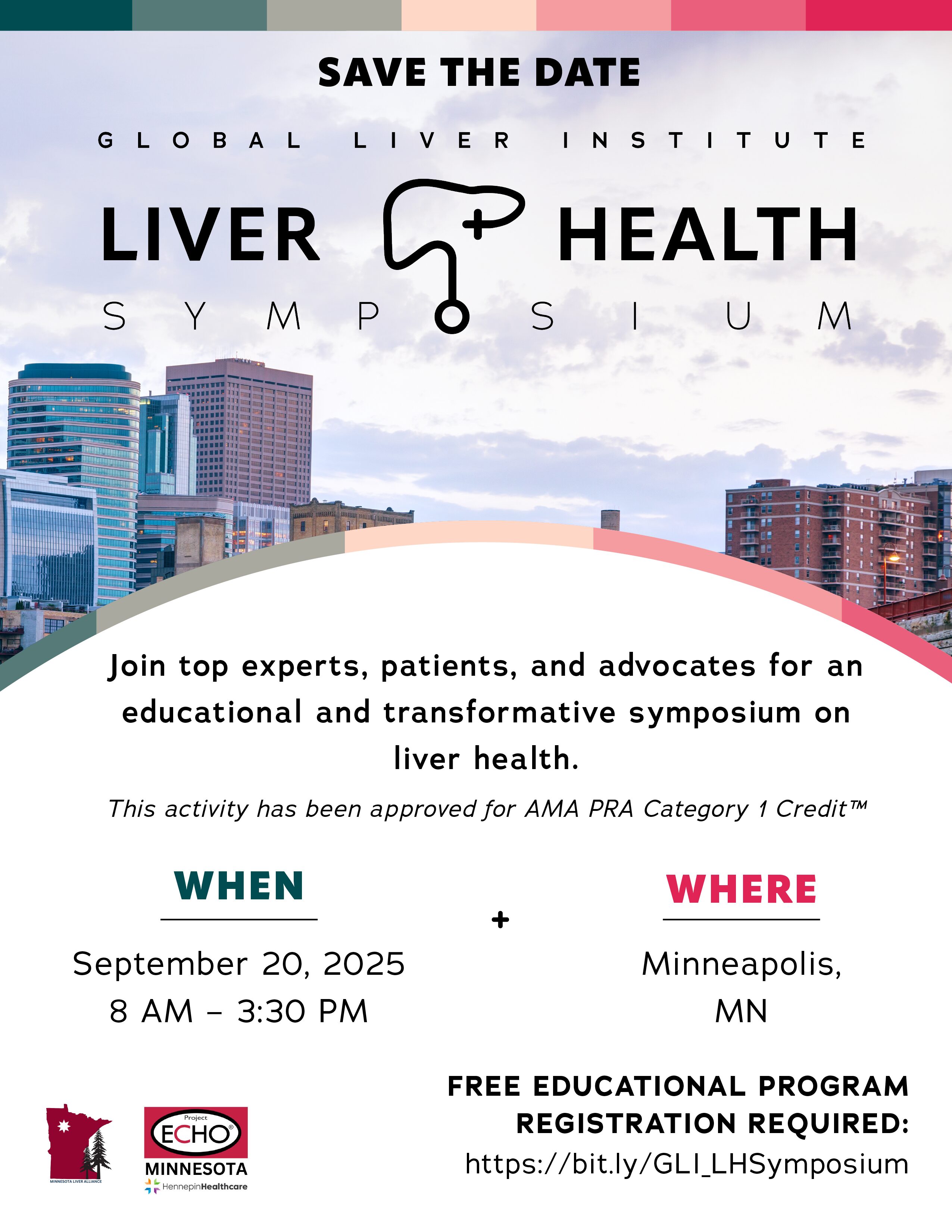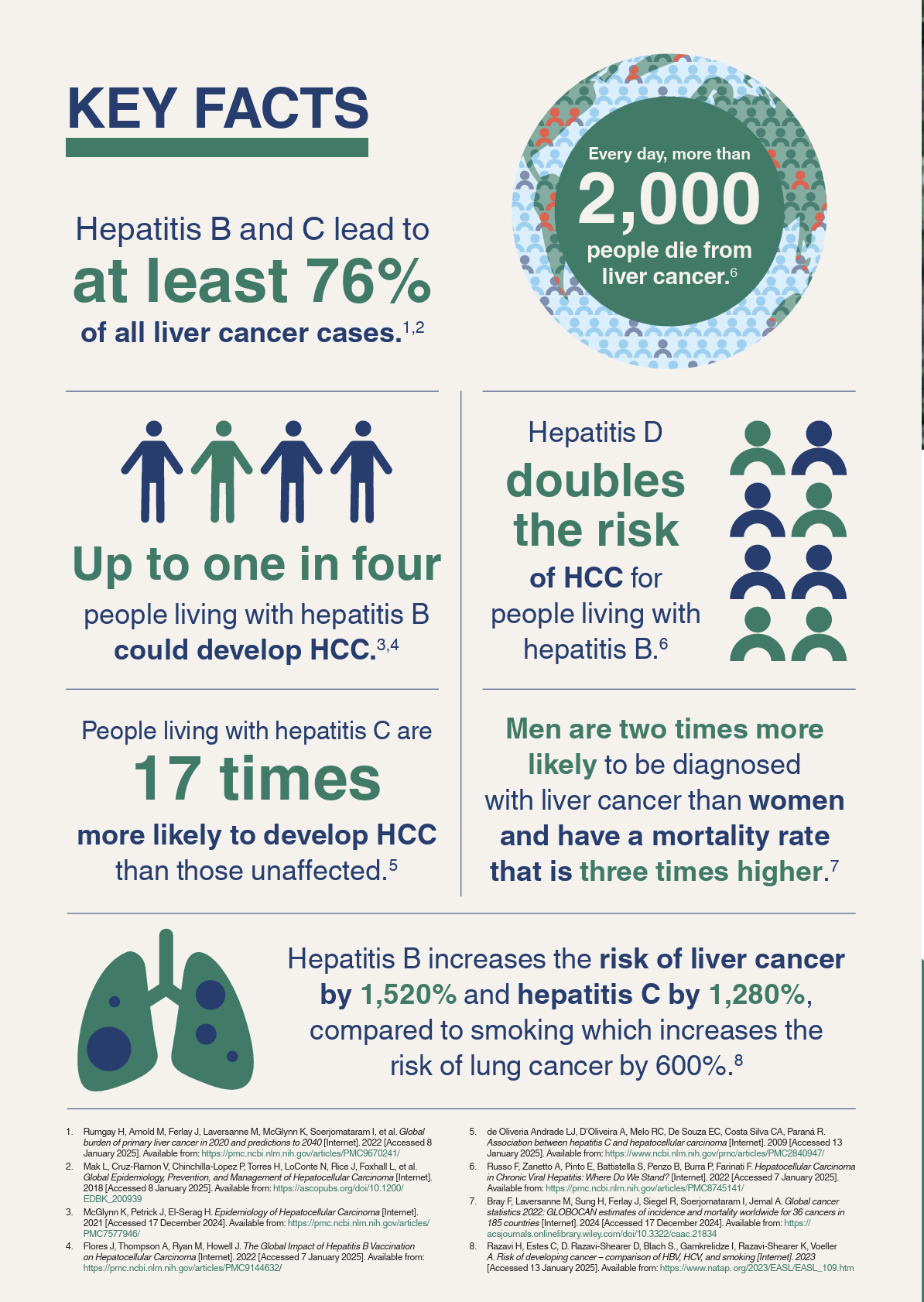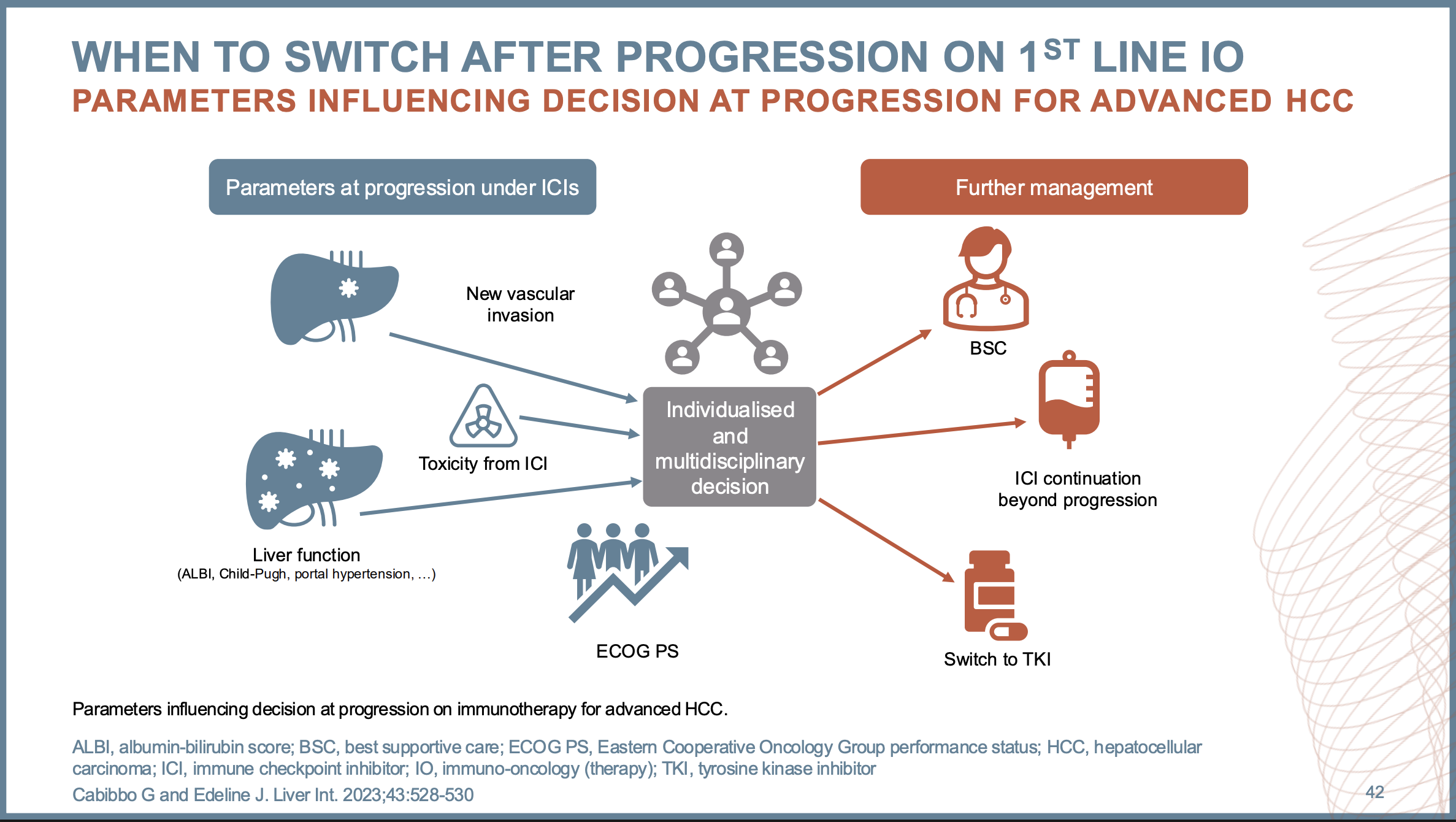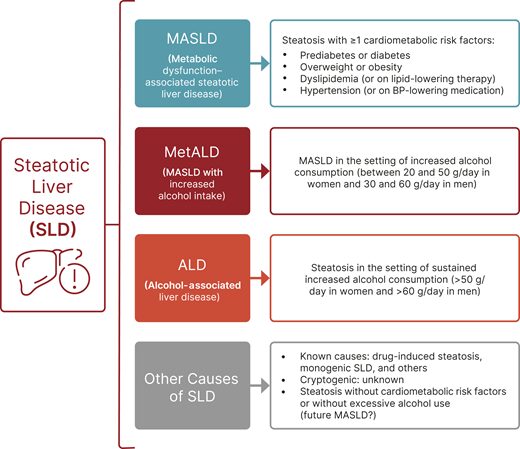
Treatment Strategies and Advancements in Testing
Global Liver Institute brings you key updates on emerging treatment strategies and advocacy efforts from global leaders like the World Hepatitis Alliance. In this issue, we offer new resources, a short quiz to see if your liver is healthy, explore promising early detection methods in Liquid Biopsy and Navigating Advanced HCC, and emphasize the importance of routine liver scanning for individuals with type 2 diabetes.
New – Is Your Liver Healthy? Fatty Liver Disease Risk Assessment Quiz
Take this quick, confidential quiz from Global Liver Institute to better understand your risk for fatty liver disease. In just a few minutes, you’ll gain valuable insights and learn whether it’s time to speak with your healthcare provider about your liver health.
Save the Date: Global Liver Institute’s Liver Health Symposium
Join us on September 20 in Minnesota for the Liver Health Symposium—a one-day, in-person event bringing together patients, caregivers, providers, and advocates to learn more about liver health.
With two tracks—one for the community and one for providers—this event offers education and powerful tools to prevent, detect, and treat liver disease. Whether you’re navigating liver health or leading care, the symposium connects you to the latest knowledge and a passionate community ready to make a difference.
“One Liver to Love” Campaign Wins Gold Aster Award
We’re proud to announce that the One Liver to Love campaign, in collaboration with Blue Faery, and with the support of Eisai, has been awarded a Gold Aster Award for its engaging TikTok video series featuring Bruce Bower. This national recognition highlights excellence in healthcare marketing and honors the campaign’s creative approach to raising awareness about liver health and liver cancer prevention.
LiverTox
LiverTox is a regularly updated database that offers accessible information on the diagnosis, frequency, clinical patterns, and management of liver injuries caused by prescription and over-the-counter medications, as well as selected herbal and dietary supplements. Widely used by physicians, patients, clinical academicians, and researchers, LiverTox is a key resource for understanding drug-induced liver injury.
Beating Cancer Through Hepatitis Elimination – Working Together to Reduce NCDs
The projected liver cancer cases caused by hepatitis are expected to double by 2040. With Liver cancer being the third leading cause of cancer deaths globally and with most cases linked to viral hepatitis, the World Hepatitis Alliance (WHA) has released a white paper urging policymakers to progress the use of funded hepatitis testing and treatment. These tools exist, but the integration into cancer control strategies has been slow. WHA research has shown that 42% of people worldwide are unaware that viral hepatitis is the main cause of liver cancer. In order to reduce liver cancer cases and increase early diagnosis, policy makers, and the general public, must be educated and take action to integrate hepatitis testing, treatment, and vaccination into funded national cancer programs.
Navigating Advanced HCC: Treatment Strategies Beyond Immunotherapy
The modules by COR2ED provide insight into HCC strategies for both healthcare professionals and patients. Dr. Amit Singal and Assoc. Prof. Lorenza Rimassa described treatment strategies for patients that are ineligible for immunotherapy (IO) or those with progression of HCC passed IO. Patients can be ineligible for IO if they have an active auto-immune disease or prior liver transplantation. If this is the case the recommended first line treatment is using Tyrosine kinase inhibitors (TKIs). For those who have progressed past 1st line treatment with advanced HCC are encouraged to join clinical trials or switch to TKIs or Anti-VEGFR 2. If the transition 2nd line therapy options such as sorafenib, lenvatinib, regorafenib, cabozantinib, and ramucirumab, can be considered after assessment from the care-team and patient.
Metabolic Dysfunction- Associated Steatotic Liver Disease (MASLD) in People With Diabetes: The Need for Screening and Early Intervention
MASLD, also known as non- alcoholic fatty liver disease, is often overlooked, especially in individuals with type 2 diabetes and obesity. While other diabetes related complications are routinely monitored, liver health is not, despite more than two-thirds of individuals with type 2 diabetes having liver steatosis. MASLD significantly increases the risk of serious liver conditions, yet awareness remains low among both patients and healthcare providers. Therefore, there needs to be more emphasis for routine screening and risk assessment of liver fibrosis in people with prediabetes and type 2 diabetes.
British Health System Embraces Liquid Biopsy Cancer Testing
Liquid Biopsy is an innovative cancer detection test that uses a vial of blood to identify the specific type of cancer a patient has. By analyzing fragments of tumor DNA circulating in the blood, doctors can pinpoint genetic markers and tailor treatment to target a patient’s tumor. This technology has been adopted by England’s healthcare system, with applications in lung, breast, and liver cancer, saving an estimated $15 million in annual costs. As liquid biopsies continue to grow, the U.S. has also begun implementing liquid biopsy programs to improve early detection and personalized cancer care.
Upcoming Events:
- July 16, 2025: Webinar Series, Hepatology and Liver Transplantation
- July 17, 2025: Webinar, Rare Liver Disease Biliary Atresia
- July 28, 2025: World Hepatitis Day
- September 5-8, 2025: Global Liver Institute’s Advanced Advocacy Academy (A3), Washington, D.C.
- September 20, 2025: Liver Health Symposium, Minnesota
For more information about the Liver Cancers Council or to learn more about joining, please visit https://globalliver.org/liver-cancers-council/ or email cancer@globalliver.org

